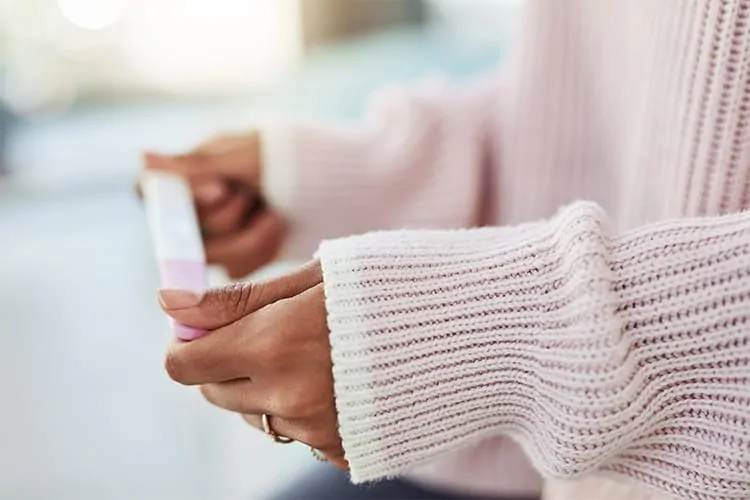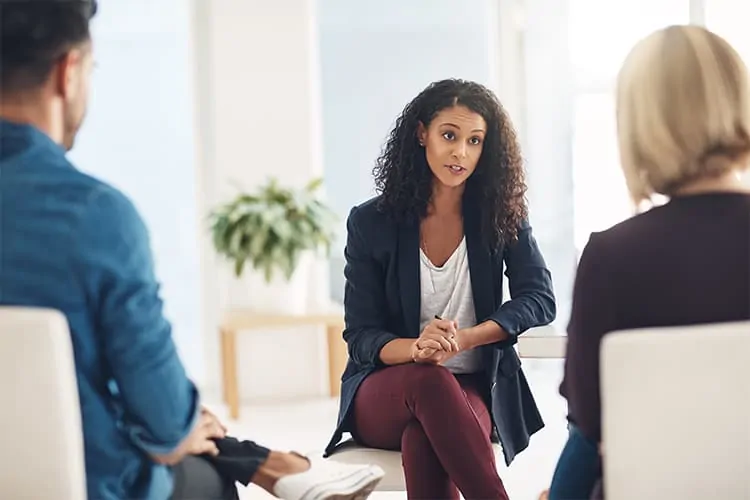If you need an egg donor to give life you your dream of having a child, there is a couple of things you need to know before starting the procedure.
If the fertility team has recommended that you use donor eggs to build your family, you probably had lots of reactions to the suggestion and even more questions. Fertility patients being offered a donor egg IVF cycle often feel like they have been catapulted into a whole new domain of treatment. Patients typically report that they never imagined using donor eggs at the start of their fertility journey and may even have sworn they would never go that route. Now, when other options have been unsuccessful, they face the reality that using their own eggs and passing on their own genes is unlikely. Here you can read answers to the questions that are common if you are considering parenthood through donor eggs.
How does an egg donation cycle work?
After your Reproductive Endocrinologist has done a thorough medical workup of you and your partner (if applicable) and donor eggs have been recommended, you will likely be referred for a psychological consultation. The purpose of this meeting is not to evaluate you, but rather to educate you about the many emotional and social aspects of receiving donor eggs. You will then be ready to find an egg donor.
Your donor could come from your clinic’s in-house egg donation program, a private agency, a frozen egg bank, or you could ask someone you know to donate eggs to you. If you are using fresh eggs, the donor’s cycle will be synchronized with yours, she will take gonadotropins to stimulate her ovaries, and the eggs will be retrieved. If you are using frozen eggs, they will be shipped from the egg bank to your clinic. Mature eggs are then fertilized with sperm in the IVF lab. Approximately five days later, an embryo will be transferred to your uterus.

Approximately 2 weeks later, you will take a pregnancy test to determine if the cycle worked. Usually, multiple eggs are retrieved from the donor which result in multiple embryos. Since only one of those is transferred to your uterus initially, the remaining embryos will be frozen so you can use them in a later cycle (if desired).
Why do I have such conflicted feelings?
Patients considering donor eggs usually report two strong and conflicting sets of emotions. On one hand, they report hope and happiness that after so much previous disappointment, they may finally be successful in starting their family. Some patients report a sense of relief that their risk of miscarriage is lower with donor eggs or that they will not pass on a genetic risk factor to their future child. On the other hand, recipients also report experiencing grief, sadness, and frustration about the need to use donor eggs. They never imagined that they would have to let go of a genetic tie to their future child and needed to grieve for not seeing their personal traits in the child (e.g, “My child won’t have my family’s curly hair, sense of humor, musical ability etc.). Patients talk about the loss of the child they imagined they would have had with their partner, a child who would have been the physical representation of their love. A woman partnered with a man may feel it is unfair that she must use donor eggs, but her similarly aged partner still gets to use his sperm.
Who wants to donate their eggs – and why do they do it?
Many recipients believe that potential donors want to donate eggs primarily for financial reasons. Egg donors must undergo an extensive psychological evaluation prior to acceptance. During this evaluation, motivations for donation and financial status are reviewed carefully. Financial need or coercion would result in disqualification of an applicant. In reality, this is rarely a reason to disqualify a donor.
In fact, although the time commitment and effort required to donate eggs is significant, donors commonly highlight three motivations for donating that aren’t about money. First, donors talk about their desire to help others. They are frequently in the helping professions (e.g., healthcare, education etc.) and share that altruism is a central value in their lives. Secondly, donors describe the central importance of motherhood in their own lives and empathize with the pain of experiencing infertility. Finally, many donors know someone who has struggled with infertility or pregnancy loss and have seen first-hand just how difficult these experiences are. They often say “I’m not using my eggs this month, so they will just go to waste. But if I donate them, I can help someone become a parent.”

Will the donor want a relationship with my child?
Research has shown that the women who express interest in egg donation see their eggs as a “DNA building block” or a “piece of the puzzle” in making a baby, but not as their child. When considering donation to heteronormative couples, donors often note that the male partner may provide the sperm, the recipient mother will carry the pregnancy and experience delivery, and the couple will be the one “getting up with the baby in the night”. All of these factors highlight for the donor that she is not the mother and that the egg she donates is not her child. When donors think about parenting, they think about the genetic children that they are raising rather than the children produced from their egg donation cycles.
Should I tell my child I used donor eggs? If so, how and when? What about telling family and friends?
Since the first egg donation cycle occurred in 1983, today’s recipient parents benefit from several decades of experience and research on best practices for recipient families. We learned that attempting to keep use of donor eggs a secret from the child resulted in significant stress for recipient parents. This secret keeping also was associated with poorer family communication and more family conflict. Additionally, given the rise of genetic registries like Ancestry.com and 23andMe as well as gene-based medicine, information about one’s genetic origins is now more easily accessible. In the past, use of donor eggs was known only to recipient parents and their fertility doctor. Now, donor-conceived children are learning about their genetic origins through a host of modalities. This cultural shift to a freer flow of information has led to the question: “Is this a secret that can be kept?
Fortunately for today’s parents, we now know about the benefits of early communication about these issues. Research has shown that telling children about their donor origins has been linked to better family functioning and has not been associated with a worsening of the child’s adjustment.
The timing of this conversation is critically important: grown children learning of donor conception as adults typically express shock, sadness, and anger. Experts in the field now recommend telling children as young as 2-3 years old, weaving the use of donor eggs into the story about how the child was welcomed into the family. Early disclosure creates a situation where the child can never remember not knowing the information. It also reduces parents’ stress about the conversation because, unlike teenagers or grown children, young children are highly receptive listeners disposed to feeling positively about the information their parents share.
While it can seem complex to explain use of donor eggs, there are now a multitude of excellent children’s books available online that can help parents begin these discussions with their child. Ask the mental health professional or counsellor at your clinic for a recommendation.
Because young children often share openly and because parents don’t want to communicate shame or require secrecy, it is often important to share use of donor eggs with those people who will be an important part of your child’s life (e.g., grandparents, aunts/uncles, close friends, regular childcare providers etc.).
Donor-conceived half siblings – A reality to be remembered
It is important for recipient parents to remember that the woman who donated eggs to their family likely donated eggs to other families as well. In the United States, egg donors are limited to 6 cycles of egg donation, with eggs going to 6 different families. Frozen egg banks may share the donor’s eggs with a maximum of 25 families. Other countries have different rules. This means that your child is likely to have genetic half-siblings being raised in other families. Children who know about their donor origins can keep this information in mind when they enter the dating world.
Building one’s family with donor eggs initially triggers both hope as well as grief. It requires consideration of unique issues, good education, and emotional support. With that preparation, prospective parents can look forward to a rewarding journey and good family outcomes. Research suggests that individuals who experience fertility challenges report even greater satisfaction with the parenting experience. Ultimately, although the path to parenthood using donor eggs was unanticipated, the journey can be even more rewarding.



